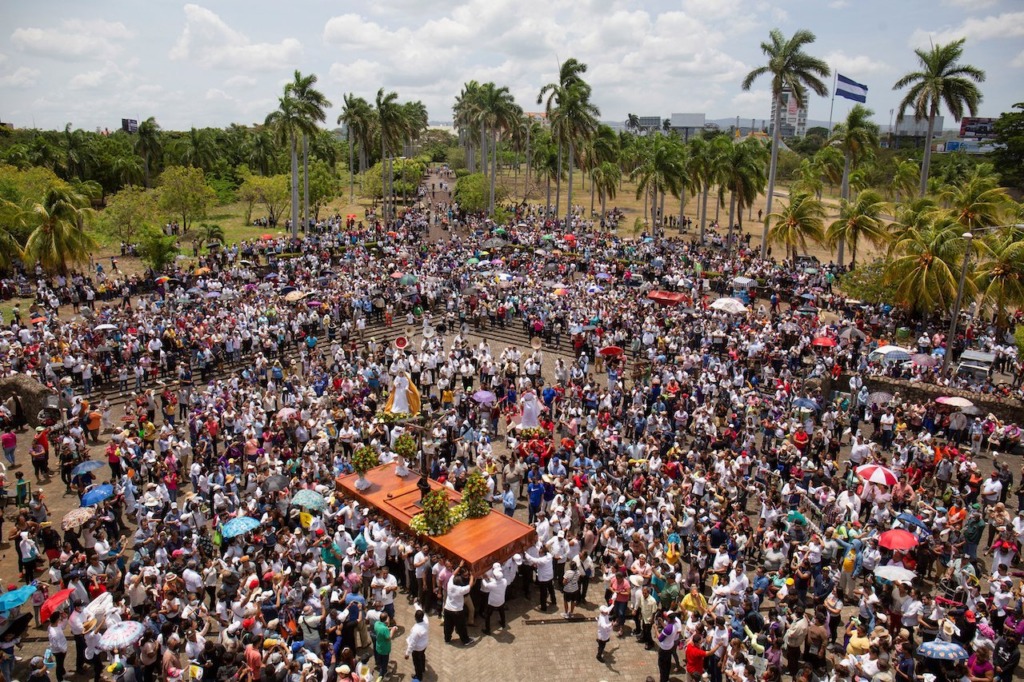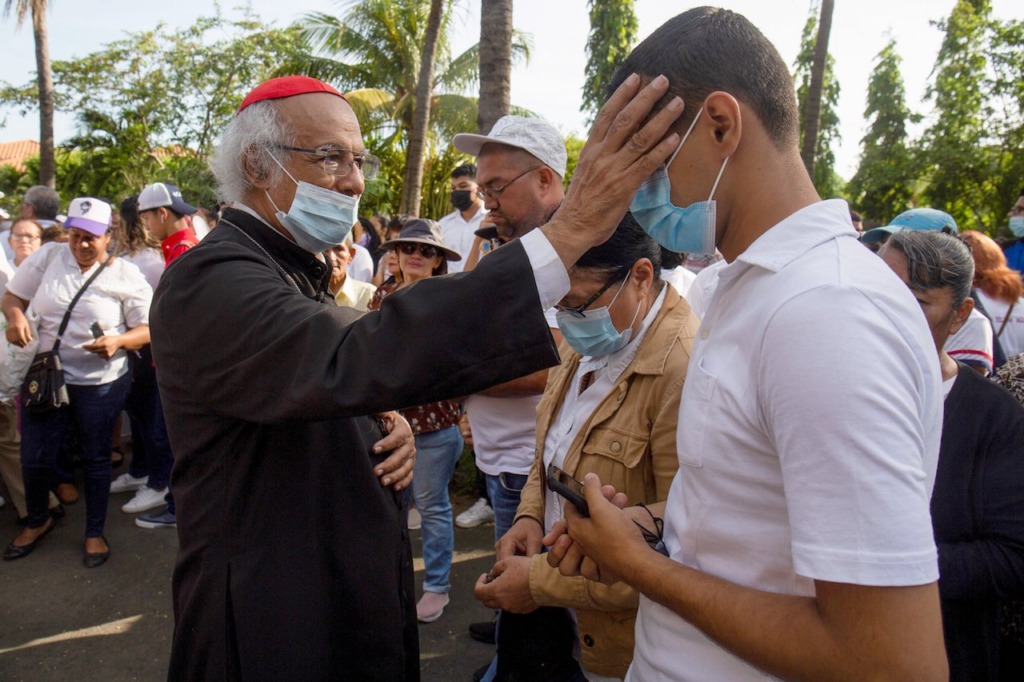WASHINGTON (OSV News) – The U.S. bishops April 20 reaffirmed their “unwavering solidarity” with Nicaragua’s bishops, priests, faithful, “and all men and women of goodwill” who are suffering “an intensification” of religious persecution by Nicaragua’s government.
Bishop David J. Malloy of Rockford, Illinois, chairman of the U.S. Conference of Catholic Bishops’ Committee on International Justice and Peace, issued the statement, which noted the government’s restrictions imposed on the Catholic Church especially during Holy Week and Easter.
Amid the crackdown on the church by the regime of President Daniel Ortega and his wife, Rosario Murillo, who is vice president, religious processions in the streets have been banned since the beginning of Lent in February. For Holy Week, the government refused to authorize the traditional Stations of the Cross that are celebrated publicly in all dioceses throughout the country.

Bishop Malloy also called on the U.S. government “and the entire international community to continue to work for the release” of Bishop Rolando Álvarez of Matagalpa, who “languishes in prison” and has been “stripped of his citizenship.”
In February, after he refused to be deported to the U.S. with more than 200 other Nicaraguan political prisoners, Bishop Álvarez was sentenced to more than 26 years in prison after being convicted of treason, undermining national integrity and spreading false news, among other charges. Before that he was held under house arrest for months after an August 2022 raid on his diocesan headquarters.
In addition to a ban on traditional Holy Week outdoor celebrations and processions, Bishop Malloy noted, the government has confiscated church property and expelled clergy and women religious.
“Despite these extreme hardships, the Nicaraguan faithful, in union with their bishops and priests, have resiliently borne witness to the power of Christ’s resurrection, as they attended Easter celebrations in record numbers,” he said.
“May our Lady of the Immaculate Conception, patroness of the United States and Nicaragua, embrace her children during this difficult time, and illumine them with the light of the risen Christ,” he added.
In his Easter message, Pope Francis remembered Christians celebrating Easter “in particular circumstances,” specifically mentioning Nicaragua.
In March on Capitol Hill in Washington, a U.S. House hearing examined what it called Ortega’s anti-Catholic persecution and called for action, just days after the Vatican said March 18 it had closed its embassy in Nicaragua after the country’s government proposed suspending diplomatic relations.
“Is the United States doing enough?” asked Rep. Chris Smith, R-N.J., a longtime Catholic lawmaker who chaired the House Foreign Affairs joint subcommittee meeting. “Are we doing enough in Congress? Is the president doing enough? Frankly, I’m concerned.”
“We all need to up our game, we all need to do more, and we need to do it immediately,” he said.

